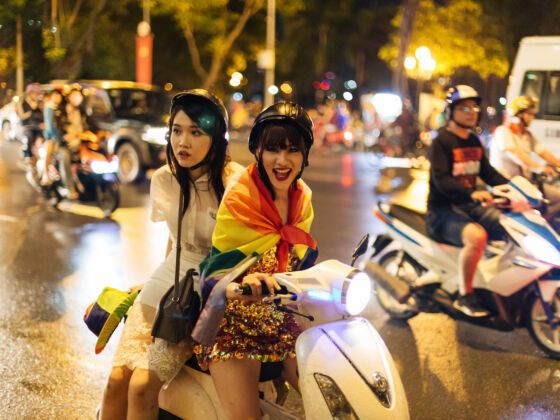BANGKOK — US politicians of all stripes are fond of condemning Vietnam’s poor human rights record. As one US Senator from Arkansas puts it, America has a “moral obligation” to stand up to oppression” in the communist nation.
But when it comes to gay rights, conservative US states like Arkansas are actually lagging behind Hanoi.
Vietnam’s communist party abolished a ban on same-sex marriage last week. Unlike states such as Texas — where vindictive politicians want to stop paying any official who certifies a gay wedding — Vietnam’s political class has responded with a collective shrug.
